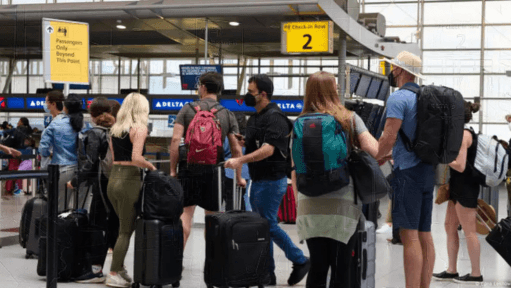
The Story of the Stranded
Update: Dubai residents can now travel regardless of their vaccination status as long as they have approval from the General Directorate of Residency and Foreigners Affairs (GDRFA), in addition to negative COVID test results.
On April 24th, UAE banned flights from India, including other 13 countries in a Notice to Airmen, for two weeks and until further notice. In July, there was speculation that vaccinated travellers from India could travel if they were administered the necessary doses of UAE-approved vaccines. The five COVID-19 vaccines that the UAE authorities have approved are Sinopharm, Pfizer-BioNTech, AstraZeneca(Covishield), Sputnik V, and Moderna. However, the UAE government extended this prohibition on travel until August 7th, and India’s Directorate General of Civil Aviation (DGCA) extended the ban on international flights until August 31. The said is not a ‘blanket ban’ and allows for specific considerations, especially concerning India’s and UAE’s air bubble pact. These considerations enable specific categories of people such as UAE nationals, diplomats, and holders of Golden Visa to be excluded from the travel ban as long as they can produce a negative PCR test report whilst traveling.
Rising Uncertainty
However, the people bearing the brunt of these restrictions are the ex-pats who have been stuck in India. They had traveled to India before the imposition of the travel ban for leisure or business purposes, oblivious to the long-term consequences of the then ‘short-term’ travel ban, which has not essentially blocked them out from returning. The travel ban is putting many jobs at stake due to long-term absence, and people are left with very few options, such as unpaid leave or resigning. This detrimentally affects the ex-pats and their dependents financially and causes concerns regarding visas, jobs, and other commitments for a seemingly indefinite period of time. The economy of a cosmopolitan country such as the UAE is also prone to take a hit when the livelihoods of the ex-pats are affected.
Measures Adopted by the UAE
UAE has taken adequate safeguard measures and has brought COVID frontline workers stranded in India back into UAE under special circumstances. Certain firms are also following this pattern and arranging for certain employees to return to the country safely but promptly. However, the rest of the ex-pats resort to other measures due to desperation to return to their homes and careers.
One such popular means of getting back into the UAE is taking the infamous ‘quarantine holiday.’ Since UAE does not allow people who have resided or transited in restricted countries in the past 14 days to enter UAE, people are traveling to other countries to go around the said restriction. Countries such as Qatar, Armenia, Maldives, Seychelles, etc., are a few of the popular destinations that ex-pats have been flying to complete the 14-day quarantine requirement and then travel back to the UAE. This loophole has been subject to certain scrutiny as well. Scams surrounding this range across fake UAE embassy websites to cons that extort a large sum of money in return for false promises that the ex-pat may be able to return to the UAE. Despite all odds, ex-pats continue to try finding access to any means to travel to the UAE to return to their lives and normalcy.
A new rule that came into effect on August 5th, 2021, allows a new category of travelers to enter the UAE. The new category includes ex-pats from India, Pakistan, Sri Lanka, Nepal, Nigeria, and Uganda. The criteria that have to be fulfilled to fall under this new category is as follows:
Residency in the UAE
ii. ICA approval (for restricted countries)
iii. Vaccinated with the appropriate doses of UAE-approved vaccines. Proof of the vaccine should be made available, and 14 days should have passed after receiving the second dose.
Furthermore, the vaccination requirement may not be deemed necessary for certain residents, such as those working in the health and education sector, students, and those employed in federal and local government agencies. Approval will also be granted on humanitarian grounds, such as people that want to be reunited with their families, aged parents, expectant mothers, etc.
The ICA approval can be accessed on the following website: https://smartservices.ica.gov.ae/. Details required for the application include applicant personal details, passport details, address in the UAE, vaccine information, and PCR test result dates. The application also calls for uploading a Passport image, personal image, and PCR test results. The upload of the vaccination card is optional. Finally, after complying with the Declaration provided at the bottom of the page, one may submit his application.